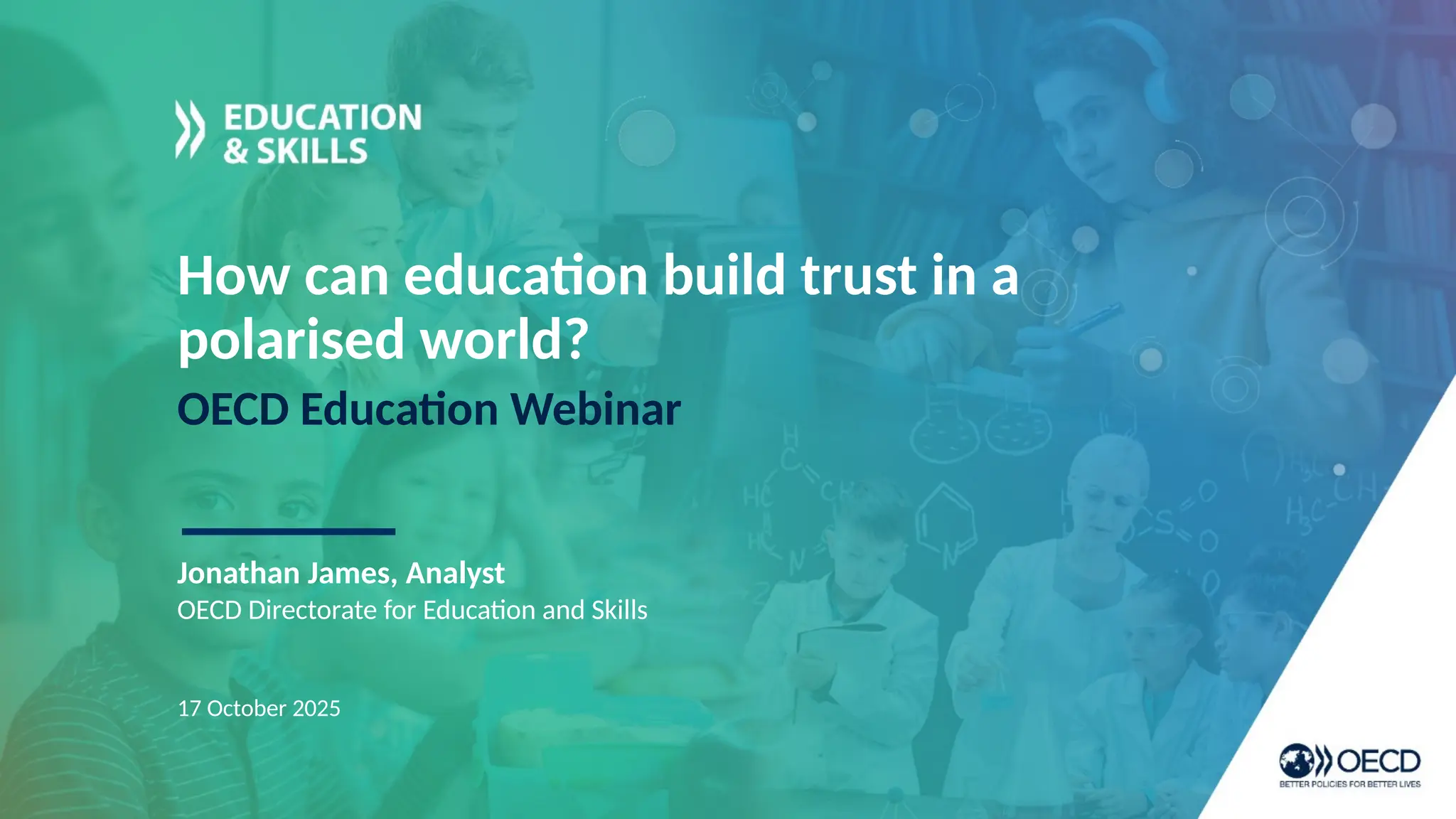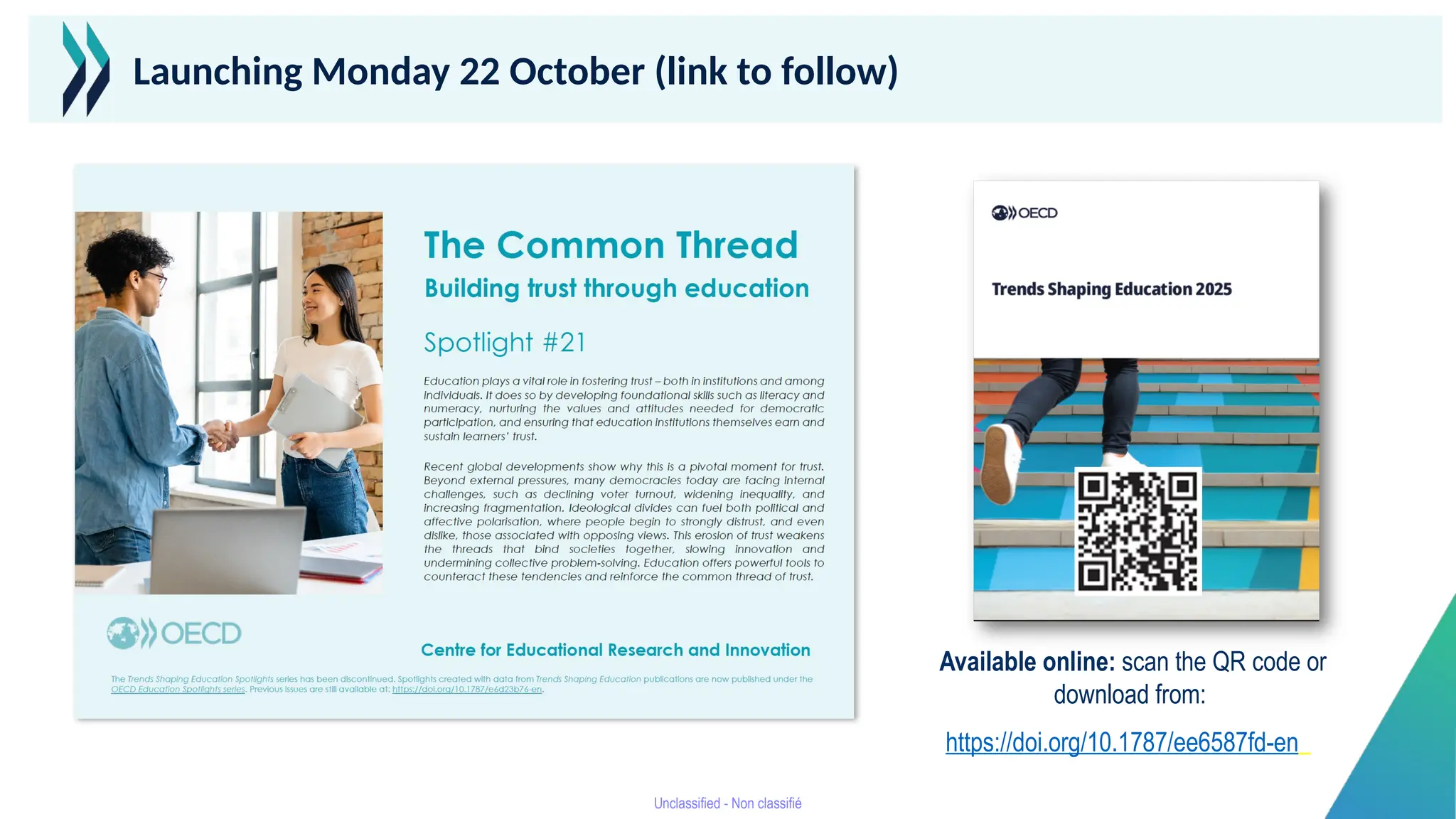Jonathan James, Analyst, OECD Centre for Educational Research and Innovation presents at the OECD webinar 'How can education build trust in a polarised world?' on 17 October 2025 https://oecdedutoday.com/webinars/ with data from https://www.oecd.org/en/publications/trends-shaping-education-2025_ee6587fd-en.html









